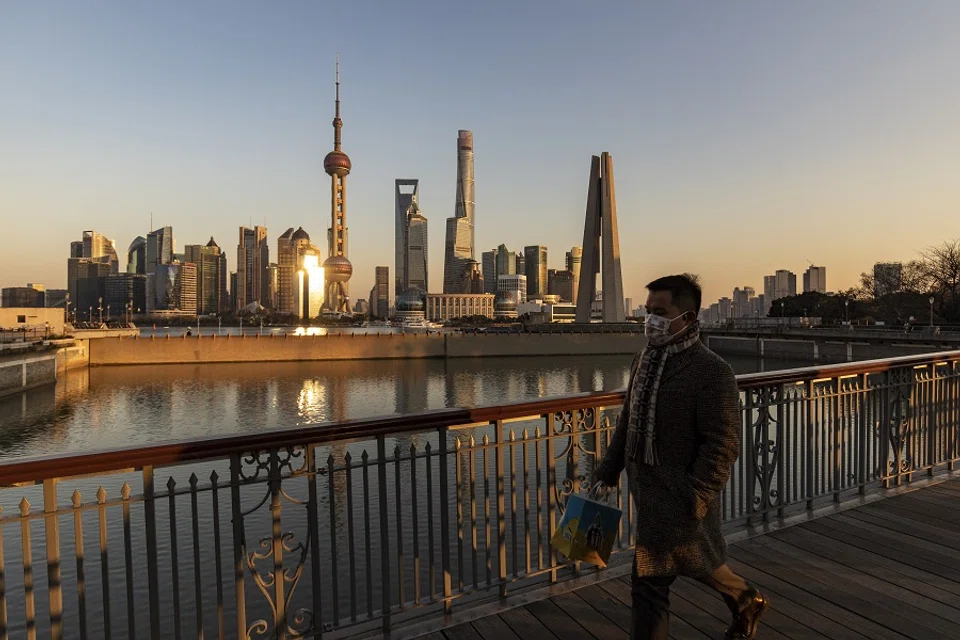Self-confidence and myths may lull China into turning inward economically
China has managed Trump era hostilities by implementing a "dual circulation strategy" with a focus on its domestic market, but it risks turning inward to the detriment of its economy, says analyst Zheng Weibin. In particular, it should guard against being shut off from the technological progress of other major economies.

It has been almost a year since US President Joe Biden took office. While he has tweaked many of the Trump administration's policies, the US's China policy is not one of them. Even China-US economic and trade relations, which have been "recoupled" according to the US, have been rocky, with the Biden administration and the US Congress constantly introducing measures or bills to sanction Chinese companies and related industries. This is a bad sign for China-US economic and trade relations and global trade.
For the moment, still on the path of opening up
In response to Trump era policies, China has adjusted its development trajectory, as seen in its dual circulation strategy. But the outside world wonders if these policies will lead to China looking inward economically or even a decoupling from the global economy.
For now, Beijing and relevant senior officials still seem to be maintaining a stance of greater opening up. For example, the Special Administrative Measures (Negative List) for Foreign Investment Access (2021 Edition) and the Special Administrative Measures for Foreign Investment Access in Pilot Free Trade Zones (Negative List) (2021 Edition) released on 27 December 2021 have been shortened to contain 31 and 27 special measures respectively.
Among the restrictions done away with, the one on foreign ownership limits in passenger car manufacturing attracted widespread attention. The related restriction that one foreign investor may establish only two or fewer joint ventures in China to manufacture the same type of vehicles was also removed, in effect opening up the entire industry.

In the face of the US's aggressive economic and trade policies, many Chinese seem to believe that they can ride it out because of China's huge population and market size.
Guarding against turning inward
Even so, there are pitfalls that China should be aware of. The growing tensions and competition between China and the US should not lead to a complete economic inward shift.
Firstly, the self-confidence and myths that China derives from its economic size and population. In the face of the US's aggressive economic and trade policies, many Chinese seem to believe that they can ride it out because of China's huge population and market size. Chinese academics have also written that economists are now paying attention to the importance of population size in economic development.
The logic is that long-term economic growth will be sustained by ongoing technological advancement, and all things being equal, populous countries possess more innovation capabilities and scope than smaller countries. This is because a large population means more talent, and a huge market can bring higher returns to the development of new technologies.
However, it is worth noting that focusing on the domestic market as the mainstay may lead to some degree of turning too much inward.

In some sense, this is also the basis of the dual circulation system, in which domestic and foreign markets complement each other but external connections remain very much a part of the paradigm. However, it is worth noting that focusing on the domestic market as the mainstay may lead to some degree of turning too much inward. In particular, local officials may muddy central government directives and end up distorting the policies.
Instability in the Taiwan Strait a factor
Next, developments in the Taiwan Strait. If we consider the prospect of future instability in the Taiwan Strait and the possibility that Washington and its allies may impose economic sanctions on China, then it becomes even more important for China to strengthen its domestic market to safeguard its economic growth.
Now, some voices in the Western media say that the transatlantic economy is the most successful in the world, with the US and Europe making up almost one-third of the world's GDP by purchasing power and US FDI in Europe amounting to US$3.6 trillion in 2019, which gives it strong bargaining power. At the same time, coupled with post-pandemic adjustments to make the global supply chain more multipolar, as well as the EU's Global Gateway plan facing off with China's BRI, Beijing's policymakers will have to come up with a good solution. Under these circumstances, the thought of turning inward may be unconsciously strengthened.

It is correct for Beijing to focus on being independent and autonomous in terms of technology, to prevent being figuratively seized by the throat. However, technological autonomy does not mean being cut off from global technological developments...
Important not to be cut off from other technological systems
Finally, technology. Will China-US competition lead both countries to set different technology standards? Extreme scenarios can happen; it is possible that each will champion its own technology supply system, and grow apart in terms of technology standards and regulations.
But looking at how the Cold War ended, one thing we need to realise is that the Soviet Union might have been destined to fail right from the start. The post-war global economic system was led by Washington. The Soviet Union lacked economic links to other Western countries and went its own way from the US in terms of technological innovation, such as taking a different path in semiconductor technology. All this resulted in its economic strength not being able to sustain long-term competition with the US.

It is correct for Beijing to focus on being independent and autonomous in terms of technology, to prevent being figuratively seized by the throat. However, technological autonomy does not mean being cut off from global technological developments, and it cannot be a means towards economic decoupling. Even as China pursues technological autonomy, it has to keep in touch with global trends.
Historically, China was a highly self-sufficient agricultural country, but there was still the Silk Road.
China is currently the biggest trade partner to more than 120 countries and regions. China should continue to make trade relations an important part of its links to the world, and continue to be the main driver of the global trade system. So, China has to avoid turning inward too much, and avoid blind faith in its own market scale and the belief that the world economy has no bearing on it. The US may be militarily strong, but the economy remains the real foundation of its national strength.
Related: China turning inward? China has always been a civilisation unto its own | Why China needs to set its own house in order with a regulatory spurt | Dual circulation strategy revisited: China deepens integration with the global economy | How China's dual circulation strategy will affect the world economy | Is it possible to decouple from the world's biggest market and factory? | Will China and the US fight another wrong war, with the wrong enemy, at the wrong place and time? | China's AI giant SenseTime blacklisted: Is China-US financial decoupling taking place?



![[Photos] Fact versus fiction: The portrayal of WWII anti-Japanese martyrs in Taiwan](https://cassette.sphdigital.com.sg/image/thinkchina/3494f8bd481870f7c65b881fd21a3fd733f573f23232376e39c532a2c7593cbc)

